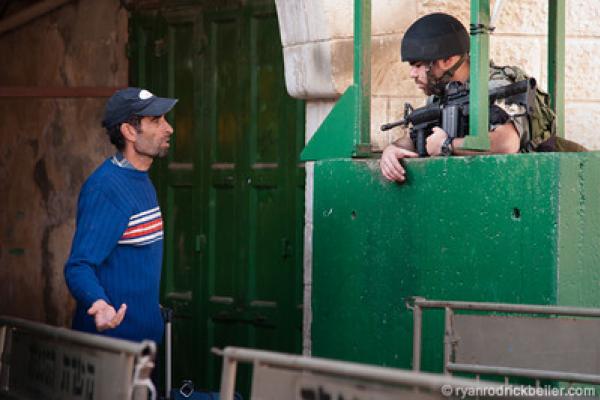A change is taking place in how evangelicals are looking at the Middle East.
Many evangelicals, who were discouraged by the failed prophecies and the “mood of doom” that dominated the evangelical church in the second half of the 20th century, are rediscovering that the gospel also speaks powerfully to issues of peace, justice, and reconciliation.
Books about the end times, such as those written by Tim LaHaye and Hal Lindsey, no longer dominate the bookshops, and people are being challenged by writings that focuses on the here and now, instead of the there and then!
In particular, the evangelical church typically has looked at the Middle East through the eyes of prophecy, leaning towards an unconditional support for Israel. Evangelicals in the West cheered the creation of the State of Israel in 1948 and the subsequent wars, believing them to be signs of the second coming of Christ—all the while neglecting the impact these events had on real people in the Middle East, specifically on Palestinians, and especially on the Palestinian Church.
The irony for Palestinian Christians is that evangelicals, with their over-emphasis on prophecy, have lost the capacity of being prophetic!
In many cases, when Palestinian Christians (or those who are sympathetic to them) share their take on things, they are demonized, ridiculed, and even accused of being anti-Semitic. The mere presence and voice of Palestinian Christians presents a dilemma for many Christian Zionists, who prefer a simple black and white perspective. But over the years, Palestinian Christians have challenged the Western church to consider what it means to be the church. They have reminded them of the importance of justice and peacemaking. If our theology produces apathy to injustice, it must be re-examined. In the words of Carl Medearis:
If your end-times theology trumps the clear commands in Scripture to love neighbours and enemies, then it is time to rethink your theology.
Many who come to visit the “Holy Land” are troubled by the situation of Palestinians, and are beginning to ask questions about the occupation and the injustices that the Palestinians are facing on a daily basis.
Facts do not lie. There is still the problem of about 5 million refugees, of whom about 1.8 million still live in refugee camps in the West Bank, Gaza, and the surrounding Arab countries. The 700 kilometer-long (435 mile) separation wall continues to affect the lives of Palestinians, leaving thousands living in isolated ghettos. The building of this wall has been judged illegal by the International Court of Justice.
The building of settlements continues to complicate matters for Palestinians and remains one of the biggest obstacles to peace. Though Palestinians and Israelis share the same water resources, per capita use in Israel is three and a half times higher than in the West Bank, due to water restrictions placed on Palestine by Israel. The Israeli military occupation is the longest occupation in modern history. Any visitor to the Palestinian areas cannot escape these realities. Checkpoints, the wall, refugee camps, land confiscations, and lack of water define the reality of Palestinians.
More and more evangelicals are paying attention to the Palestinian Church and its testimony and ministry in the midst of the conflict; the writings of Elias Chacour, Naim Ateek, Mitri Raheb, and Alex Awad are good examples, along with the non-violent peace activities and advocacy by Palestinian Christian organizations. There are also the writings of many Western evangelicals who are sympathetic to Palestinians, and new documentaries that offer a different perspective, such as With God on Our Side and Oh Little Town of Bethlehem.
Then there is the “Christ at the Checkpoint” conference, in and of itself a big example of this change. Among the confirmed speakers for 2012 are John Ortberg, Lynne Hybels, Shane Clainborne, Tony Campolo, Ron Sider, Samuel Rodriguez, Sang Bok David Kim, and many more.
In addition to the international speakers, local Palestinian and Messianic Jewish leaders will share their own experiences and offer diverse perspectives. Participants will meet Palestinian Christians, and be able to listen and see first-hand the realities on the ground, as seen through the eyes of the people.
Lynne Hybels, co-founder of the Willow Creek Church with her husband Bill, has described her discovery of the church in Palestine. She concluded after many journeys:
I am still pro-Israel, but I’ve also become pro-Palestine, pro-peace, and pro-justice and pro-equality for Jews and Arabs living as neighbors in the Holy Land. And the bottom line is always: pro-Jesus!
If more Christians go to Bethlehem in 2012 and leave with the same attitude, we can start looking at this part of the world with hope, in a time when it is desperately needed.
Munther Isaac is the Vice Academic Dean at Bethlehem Bible Collegeand a PhD candidate at the Oxford Center for Mission Studies. He is also the director of the Christ at the Checkpoint Conference. Click here to learn more about the event.
Got something to say about what you're reading? We value your feedback!
